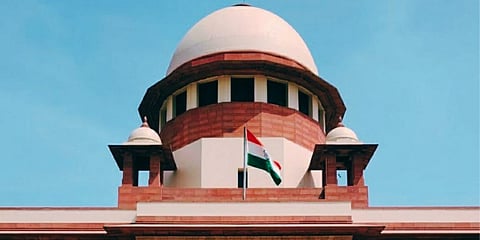

The Bench comprising Justices Abhay S. Oka and Pankaj Mithal was of the view that since the petitioner was being represented by an advocate, if he intended to withdraw his petition voluntarily, he would have instructed his lawyer to do so.
—
IN a strange incident that can perhaps be seen as a symptom of the conditions that exist in Indian prisons, a jail superintendent obtained a letter from an inmate to the effect that the latter wanted to withdraw an application seeking premature release.
On Monday, a Supreme Court Bench comprising Justices Abhay S. Oka and Pankaj Mithal expressed surprise at the superintendent's conduct and directed him to file an affidavit and explain his conduct.
The Bench was of the view that since the petitioner was being represented by an advocate, if he intended to withdraw his petition voluntarily, he would have instructed his lawyer to do so.
"It is unfortunate that the jail superintendent has obtained such a letter from the petitioner. [He] must file an affidavit and explain his conduct," the Bench directed.
The Bench also took note of the status report filed before it indicating that in August 2023, the jail superintendent had recommended to the principal secretary of the home department of Chhattisgarh to grant permanent remission.
The Bench directed the principal secretary to file his explanation for not complying with the court's Order passed on August 21, 2023.
On August 21 this year, the Bench had directed the Chhattisgarh government to reconsider the case of the petitioner for grant of permanent remission in light of the judgment of the Supreme Court in Jaswant Singh & Ors versus the State of Chhattisgarh and Anr.
The Bench had directed the government to take an appropriate decision within a period of one month. However, the government failed to pass any final Order on the remission.
In the Jaswant Singh case, the Supreme Court had held that the presiding judge's opinion on the grant or refusal of remission should be accompanied by adequate reasoning after taking into consideration relevant factors that govern the grant of remission as laid down in Laxman Naskar versus Union of India.
These factors include assessing (i) whether the offence affects the society at large; (ii) the probability of the crime being repeated; (iii) the potential of the convict to commit crimes in the future; (iv) if any fruitful purpose is being served by keeping the convict in prison; and (v) the socio-economic condition of the convict's family.